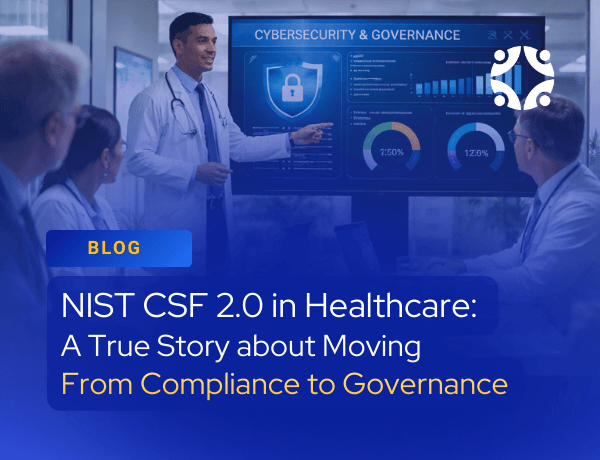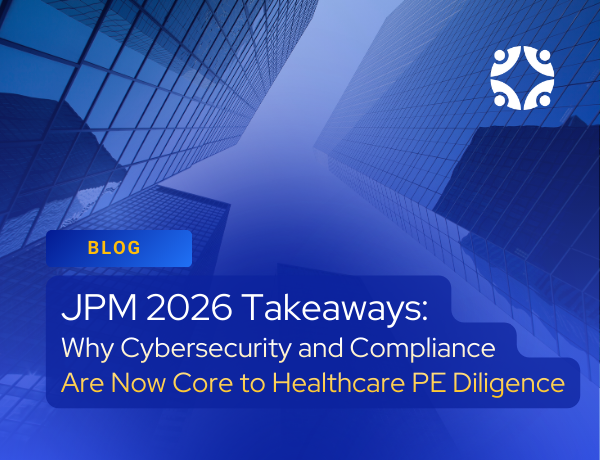Artificial intelligence (AI) technologies in healthcare systems have promised transformative advancements in patient care, diagnostics, and treatment outcomes and have shown remarkable potential in analyzing vast amounts of medical data, predicting disease patterns, and personalizing treatment. However, healthcare organizations should also be concerned about these advancements’ ethical, legal, and social implications. Organizations across the healthcare ecosystem need to establish strong AI governance programs to address these issues, specifically those related to patient privacy, security, and compliance. Developing an AI Use Policy is the first step in establishing an AI governance program and is crucial to ensure that AI technologies are deployed ethically, responsibly, and effectively while safeguarding patient privacy, safety, and trust.
But where do you start? Like anything new, it can be overwhelming to start from scratch. The following quick guide is a great starting place and outlines key components to include in your AI Use Policy:
- Introduction and purpose:
- Define the purpose and scope of the AI Use Policy, emphasizing the importance of ethical AI adoption in healthcare, including clinical and non-clinical applications and the organization’s commitment to responsible AI use to mitigate risks across all areas of operation.
- Principles and values:
- Establish guiding principles aligned with organization values and Trustworthy AI, emphasizing patient-centricity, fairness, transparency, accountability, privacy, and safety across all AI applications, whether clinical or non-clinical.
- Roles and responsibilities:
- Clearly define the roles and responsibilities of stakeholders involved in AI development, deployment, and governance, emphasizing the importance of human oversight and accountability in mitigating risks and ensuring the ethical and responsible use of AI technology across all organizational functions.
- Data governance and privacy:
- Outline policies and procedures for data governance and privacy protection, ensuring compliance with regulations like HIPAA and state laws and prioritizing patient consent, data security, encryption, de-identification, and anonymization in all data-related activities, including operational and administrative processes.
- Ethical and regulatory compliance:
- Ensure compliance with ethical guidelines, professional standards, and regulatory requirements across all AI applications, addressing issues such as informed consent, non-discrimination, bias mitigation, and ethical review and oversight to protect patient interests and organizational integrity in clinical and non-clinical contexts.
- Algorithm development and validation:
- Define standards and best practices for AI algorithm development, validation, and testing, emphasizing transparency, explainability, and rigorous validation studies to ensure AI models’ efficacy, safety, and accuracy in clinical and non-clinical applications.
- Integration and decision support:
- Specify guidelines for integrating AI technologies into operational workflows, decision-making processes, and business operations, emphasizing human oversight and collaboration between AI developers, stakeholders, and domain experts to ensure the ethical and effective use of AI solutions across all areas of the organization.
- Engagement and communication:
- Promote transparency and open communication with stakeholders regarding the use of AI technology, educating them about the benefits, risks, and limitations of AI applications and soliciting their input and feedback to ensure the ethical and responsible deployment of AI across all organizational functions.
- Continuous monitoring and evaluation:
- Establish mechanisms for ongoing monitoring, evaluation, and improvement of AI applications, including tracking performance metrics, outcomes, and user feedback and conducting regular audits and assessments to ensure compliance, quality, and safety in clinical and non-clinical contexts.
- Training and education:
- Provide comprehensive training and education programs for staff, professionals, and stakeholders on AI literacy, ethics, and best practices, fostering a culture of continuous learning, innovation, and responsible AI use across all areas of the organization.
- Enforcement and accountability:
- Define clear procedures for enforcing the AI Use Policy, addressing violations or breaches, and holding individuals and entities accountable for their actions and decisions related to AI use, including implementing sanctions, disciplinary measures, or corrective actions as necessary to uphold ethical standards and mitigate risks across all organizational functions.
- Review and revision:
- Commit to regularly reviewing and updating the AI Use Policy to reflect evolving technologies, regulations, and ethical considerations, soliciting feedback from stakeholders, experts, and the broader community to ensure its effectiveness, relevance, and alignment with Trustworthy AI principles in clinical and non-clinical contexts.
By following this quick guide, healthcare organizations can develop a comprehensive AI Use Policy that promotes ethical AI adoption, protects patient interests, and fosters trust in AI technologies within the healthcare ecosystem.
This guide is an excerpt of The Governance Institute (TGI) Strategy Toolbook, AI Governance and Strategy Alignment: Empowering Effective Decision Making, authored by Clearwater Chief Risk Officer and Head of Consulting Services and Client Success Jon Moore.
TGI members can access the toolbook on TGI’s website here.
If you are not a TGI member and would like to learn more about the toolbook or have questions about how to develop an AI use policy and governance structure in your organization, please reach out to us here.



